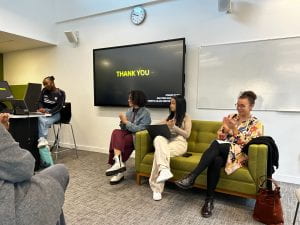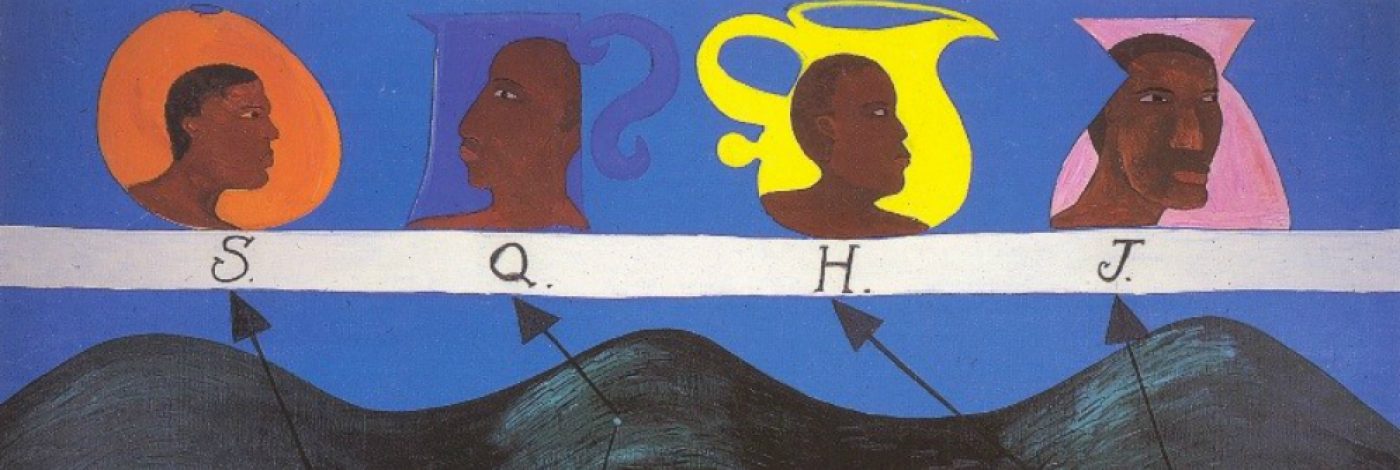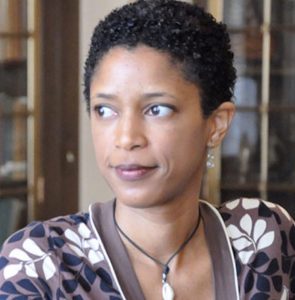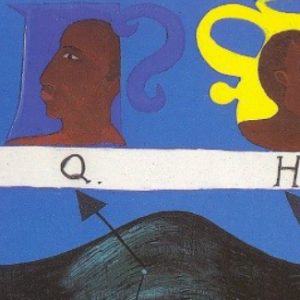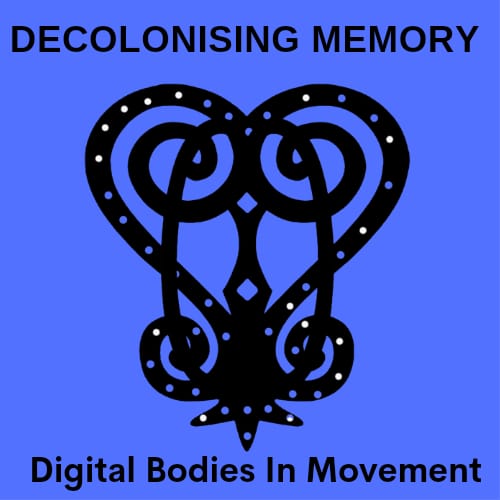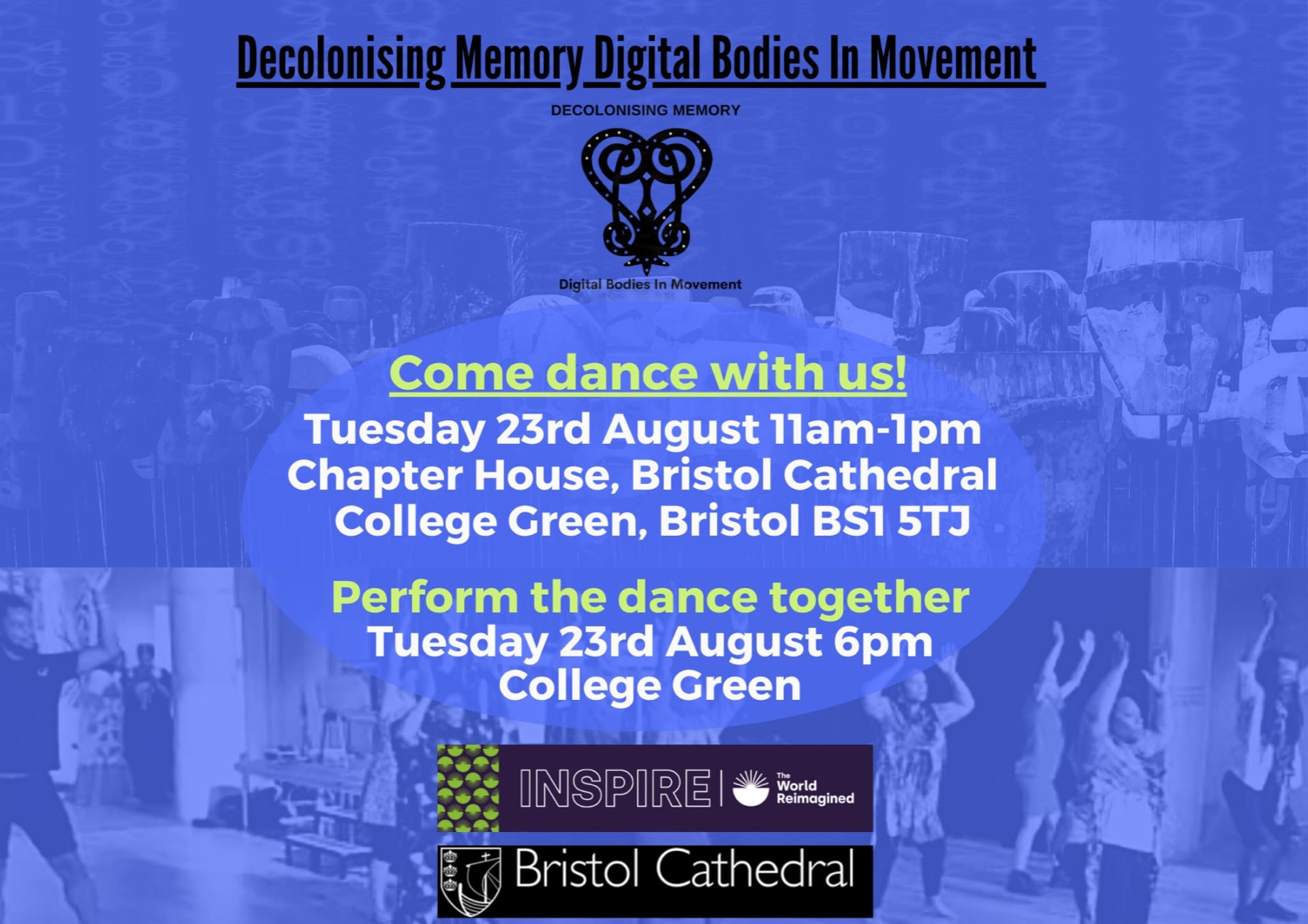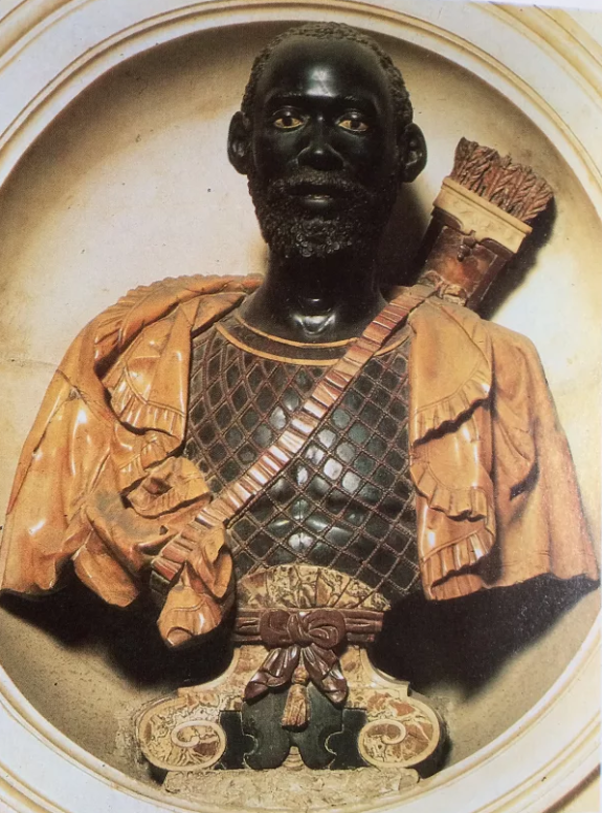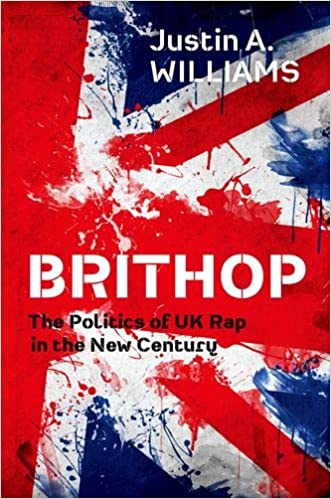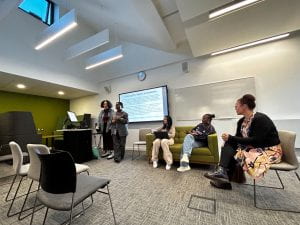
Siza Dube: To commemorate this year’s Black History Month theme, ‘Saluting our Sisters’, my colleague Lizze Bowes and I took the opportunity to bring together Black women in and outside of the academy to facilitate a rich discussion about honouring our Black women predecessors. The event responded to the challenges that come with our intersectional identities and the urgent need to address inequalities, such as those pertaining to gender, class and race in the spaces we occupy. This is a reflection on the discussions that took place.
We were delighted to be joined by our three panellists. Dr Josie Gill is Associate Professor in the Department of English at the University of Bristol. Her research explores the intersections between contemporary literature, science, and race. Nasra Ayub is a TEDx speaker, freelance journalist with notable by-lines in Stylist, Dazed, Metro UK, i paper, and gal-dem, and Diana Award 2020 winner for her outstanding contributions to human rights activism. Lastly, Stacey Olika is a host, digital artist, content creator and diversity and inclusion consultant. Stacey is currently serving as the Creative Diversity Coordinator at Channel 4.
The rich discussion that took place led me to consider the importance of Black feminist thought and its ability to transcend the academic sphere, inspiring Black women in the various spaces we occupy to resist oppression and challenge what Audre Lorde in Poetry is Not a Luxury describes as the ‘institutional dehumanisation’ experienced by those on the margins of society. Josie encouraged us to reflect on Angela Davis’s keynote address Black Women in the Academy, meanwhile Nasra and Stacey both spoke of having to navigate their intersectional identities as Black women in their respected fields. Nasra, for instance, spoke about the unique experiences of Somali Muslim women. Each paper was testament to the importance of the concept of intersectionality made popular by Black feminist Kimberlé Crenshaw. The concept has been further explored by various Black feminists such as Davis in her seminal text Women, Race and Class, Frances M. Beal in Double Jeopardy and bell hooks in Aint I Woman, and demonstrably continues to resonate with a new generation of Black women.
I was deeply moved by seeing Black feminisms in action and how Black feminist thought has touched the lives of our speakers and panellists in pivotal ways, most notably in giving them the tools to articulate their experiences as Black women in society. Black feminist thought and Black feminisms have been crucial to my conceptualisations of self, amidst the violence of institutional dehumanisation and systems of oppression. Admittedly, navigating the world, especially academia has at times felt unbearable, but the words of Black women continue to help me navigate a world that was not made for me. Most importantly, Black women’s legacies of activism in and outside of the academy serve as a reminder of the importance of my research and how it is centred toward activism, dismantling structures of oppression and working towards liberatory futures. Black feminist voices continue to be a minority in the academy. As such, we must continue to give credit to our Black women predecessors who have equipped us with words, frameworks and the language to articulate our oppressions and the institutional changes necessary for our liberation. We must salute them, not just during Black History Month and not only in the academy but wherever we exist, for without them we would not be able to occupy the spaces we do. My contribution to the ‘Welfare Citizenship and Intersectional Feminism’ project will at the very least honour and memorialise Black women’s overlooked herstories, centring our voices as interlocuters and not just merely objects of study.
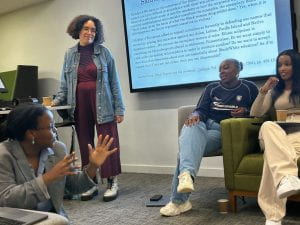
Lizzie Bowes: Having just moved to Bristol at the start of the academic year, and amidst beginning the new challenge of a PhD, jumping right into organising an event was certainly an undertaking – but I’m so pleased that Siza and I were able to host the ‘Saluting Our Sisters’ panel. As Black women within the academy, myself and Siza know all too well the feeling of alienation that can accompany entering and working in institutions like universities. There is often a pervasive sense that we are intruding, that these spaces were not built for us and – in some cases – have systematically excluded scholars and thinkers who look like us and come from similar backgrounds. However, hosting the event and seeing the amount of people willing to show up for and celebrate Black women has been such an affirming and welcoming moment in my transition to Bristol, and one I will remember fondly for a long time to come. It was so important that we were able to break away from the insularity of the academic bubble, and invite speakers from the creative industries to join academics and students. Hearing our panelists – all of whom work in different fields, on different things – finding moments of connection as they listened to one another was a great example of why community engagement is so crucial for universities. As we rightfully address the lack of representation and diversity in university staff across the UK, we should also challenge the notion of the ivory-towered academic. Universities have so much to gain from sharing and collaborating with people in the world (the real world), and I was so grateful to Stacey, Nasra and Josie for exemplifying that so beautifully and sharing their wisdom with us. The conversation spanned from the representation of Blackness in the arts, to the lived experiences of growing up Black and Muslim in Bristol, to how universities can support Black women in academia.
As part of my current research (on Black-British rap music), I spend a lot of time thinking about the underrepresentation, the misrepresentation, and the oppression of Black women. These marginalisations rightfully demand more research and awareness. But amidst that, I want there to be space and time devoted to celebrating Black women, for platforming our achievements and creating moments of joy and community for us. This event felt like such a welcome example of that, as we all chatted over tea and biscuits, and put incisive questions to our panelists, and got to hear from three Black women all trailblazing in their own ways. I now hope that the spotlight shone on Black women and their achievements goes beyond just Black History Month, and that our panel event to salute our sisters is the first of many.
Written by Siza Dube & Lizzie Bowes
Doctoral researchers at the University of Bristol
References
Beal, Frances,‘ Double Jeopardy: To Be Black and Female’, in The Black Woman: An Anthology, ed. by Toni Cade Bambara (New York: Washington Square Press, 2005), pp. 109-22
Davis, Angela, ‘Black Women and the Academy’, Callaloo, 17.2 (1994), 422-431
Davis, Angela, Women, Race and Class, Penguin Modern Classics (London: Penguin Books, 2019)
hooks, bell, Ain’t I a Woman: Black Women and Feminism, Second edition (New York: Routledge, Taylor & Francis Group, 2015)
Lorde, Audre, Poetry Is Not a Luxury in The Master’s Tools Will Never Dismantle the Master’s House, (London: Penguin Books, 2018)
